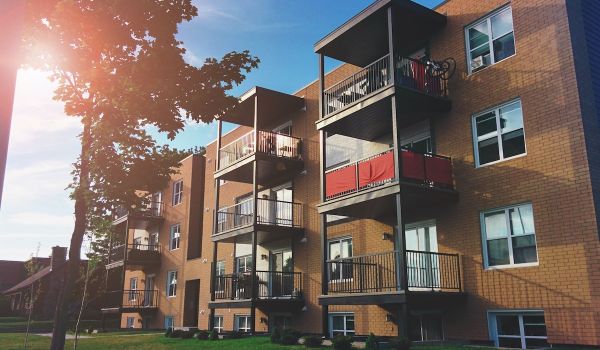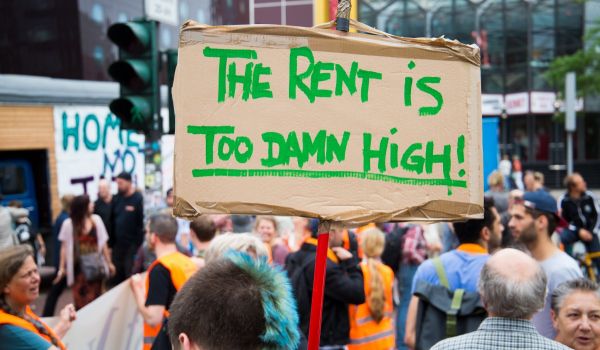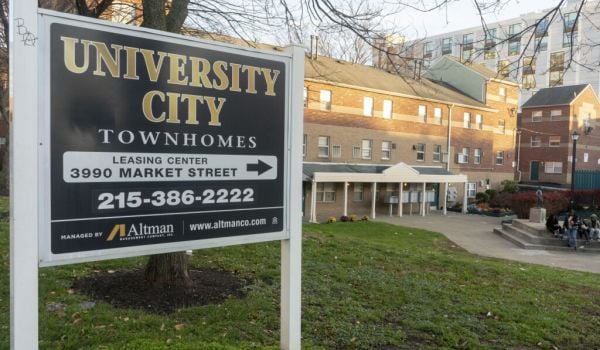The promise of the Fair Housing Act was simple: No American should face discrimination in the search for a home. Where we live is a fundamental determinant of our opportunities and outcomes, and in 1968, Congress recognized how critical it was to guarantee every person a fair chance at a place to call home.
But decades later, millions of people are still subject to an insidious legal form of housing discrimination, and advocates are forced to maneuver through the country one state and city at a time to fight against it. It is time for the federal government to recognize source of income discrimination as a federal problem and make discrimination based on how someone pays rent illegal across the country.
Source of income discrimination occurs when landlords refuse to rent to households using nontraditional methods of income — such as veteran and disability benefits or Housing Choice Vouchers — to pay rent. More than two million people in the U.S. utilize housing vouchers, and this number may grow as the Biden-Harris Administration works toward making vouchers universally accessible to low-income families who qualify for them.
For landlords, accepting housing vouchers should be a good business move. The Housing Choice Voucher program guarantees a partial monthly rent payment from the government, offering landlords some protection against job losses or unexpected expenses that could make rent payments a challenge for the average tenant.
The reality is that source of income discrimination has become a proxy for racial discrimination. According to federal data, 65% of all voucher holders are people of color, resulting in a disparate impact on people of color that cuts against the very heart of the Fair Housing Act. As the Washington Post analyzed in 2015, voucher holders are routinely discriminated against, preventing people who need housing from accessing it.
Unsurprisingly, when income discrimination bans are in place, they’re effective — at least when they’re enforced. A 2018 Urban Institute study found that landlords in areas with source-of-income protections rejected tenants with vouchers around half as often as landlords in places without them. Research has also found areas with income discrimination bans have higher rates of voucher utilization and permit more moves to neighborhoods with lower poverty rates.
Today, source of income laws nationwide are a patchwork. Some states ban this form of discrimination outright; others only have protections in select localities; still others ban certain forms of income discrimination, but explicitly allow landlords to turn Housing Choice Voucher holders away. Just 19 states ban it entirely; 17 have no source of income laws at all.
The result: Landlords and residents are less likely to know and follow the law, and smaller jurisdictions have trouble enforcing it. Reporting discrimination isn’t always easy when residents first have to determine if a landlord violated city, county or state law.
What’s more, enforcement is scattered. When California tested 80 properties in L.A. county last year, nearly half showed evidence of discrimination despite a state law prohibiting it. New York has robust income discrimination protections, but has faced challenges in adequately staffing its enforcement efforts. Bans alone are not enough without accompanying resources that provide for adequate education and enforcement.
Recent lawsuits in California, New York and Washington, D.C. are signs that states and localities are getting serious about enforcing bans on source of income discrimination. But too many people still remain unprotected.
A federal housing voucher should guarantee the same benefit to a low-income family in Kansas that it offers to a similar family just across the border in Colorado. Until then, vouchers are only as effective as the income discrimination laws in each state. If policymakers want to help people secure stable housing and achieve upward mobility, then it’s time to take action and pass a federal ban on income discrimination.
We cannot achieve fair housing or racial equity in this country without source of income protections. Federal action is the only way to eliminate confusion about the law and create enforcement mechanisms that ensure voucher holders can access affordable homes. It’s time to amend the Fair Housing Act to embrace a ban on source of income discrimination. If you believe all our neighbors deserve a fair chance at a good home, let your member of Congress know you won’t stand for anything less.

Jacqueline Waggoner is president of the solutions division of Enterprise Community Partners, a national affordable housing nonprofit.
















